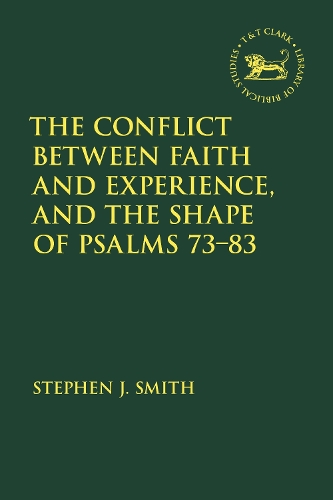
The Conflict Between Faith and Experience, and the Shape of Psalms 7383
(Paperback)
Available Formats
Publishing Details
The Conflict Between Faith and Experience, and the Shape of Psalms 7383
By (Author) Stephen J. Smith
Bloomsbury Publishing PLC
T.& T.Clark Ltd
25th January 2024
United Kingdom
Classifications
Professional and Scholarly
Non Fiction
Jewish texts: Tanakh, Torah, Neviim, Ketuvim
223.206
Physical Properties
Paperback
224
Width 156mm, Height 234mm, Spine 14mm
340g
Description
Stephen J. Smith enters the lively field of editorial-criticism of the Hebrew Psalter or Psalterexegese with this detailed investigation into the final form of Psalms 73-83. In the book, he engages scholarly disagreements over this collection's structure, the degree and nature of its literary unity, and the primary theological message(s) it communicates. Smith argues that the sequence of Psalms 7382 - and possibly 83 has a deliberate design that reflects a sustained focus on addressing, and resolving, a multidimensional collision between faith (i.e., core Israelite beliefs about God) and experience (i.e., the individual/communitys lived experience of God) that was precipitated by Gods prolonged absence in the Temples destruction (c. 586/587 BCE). Parting ways with previous scholarship, Smith contends that a recursive organizing principle rooted in biblical parallelism structures the collection. Over the book's nine chapters, he makes the case that the editor(s) grouped its psalms into two major blocks (74-78; 79-82) of two sub-groupings each (74-76, 77-78; 79/82, 80-81) in order to develop a single topic in multiple dimensions: the severe threat that God's prolonged absence in the temple's destruction posed to the ongoing viability of various core Israelite beliefs about God, most fundamentally God's goodness. Smith makes the case that the collection is shaped to resolve this crisis by bolstering the readers confidence in, and commitment to, these beliefs in the face of their apparent failure.
Author Bio
Stephen J. Smith is Assistant Professor of Biblical Studies and Christian Ministries at Belhaven University, USA.
